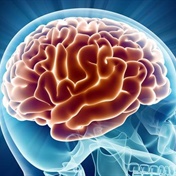- New research shows that binge drinkers have to put in more effort into trying to feel empathy for others in pain.
- The study compared binge drinkers (when they were sober) and non-binge drinkers.
- Brain scans revealed hyperactivity in the brains of binge drinkers while performing a task.
There is a myriad of harmful effects of binge drinking, and a new study reveals another interesting finding: people who binge drink have to put more effort into trying to feel empathy for others in pain.
The study was done by researchers from the University of Sussex, who found that binge drinkers show more extensive dysfunction across their brains than previously realised.
Their findings were published in the journal NeuroImage: Clinical.
Binge drinking defined
According to the Association for Alcohol Responsibility and Education (AWARE), binge drinking is defined as consuming a lot of alcohol over a short period of time (typically two hours). For men, this normally means five or more drinks within that period, and for women four or more drinks during the same period.
The Centres for Disease Control and Prevention (CDC) notes that for it to qualify as binge drinking, the amount of alcohol should be more than 60g of pure alcohol – equivalent to about three-quarters of a bottle of wine.
How the study was done
For the study, the eight researchers observed the brain activity in the fMRI scanners of 71 participants from France and the UK while they undertook a pain perception task.
Half of the participants were classified as binge drinkers and half were not. The paper indicates that the binge drinkers were sober while being observed.
The task included showing participants an image of an injured limb. All participants were asked to imagine either that the body part was theirs or that of another person, and to state how much pain was associated with the image.
Binge drinkers' brains work harder to experience empathy for others
When trying to adopt the perspective of another person experiencing pain, the binge-drinking participants were found to struggle more than their non-binge-drinking counterparts.
The researchers wrote that they took more time to respond, and that the scans revealed their brains had to work harder (use more neural resources) to appreciate how intensely another person would feel pain.
A more widespread dysfunction was also found. A visual area of the brain, involved in recognising body parts, showed unusually high levels of activation in the binge drinkers, but this was not found in the non-binge drinkers who looked at the same images.
Interestingly, when the binge drinkers were asked to imagine the injured body part in the picture as their own, their pain estimate didn't differ from that of the non-binge drinking participants.
According to study author, Professor Theodora Duka from the School of Psychology at the University of Sussex, a region of the brain called the Fusiform Body Area, that is associated with the recognition of body parts, showed hyperactivity in the binge-drinking participants when it came to them feeling empathy.
Higher brain activity also needed
"I have been studying the effects of drinking excessive alcohol for many years. In that time, I have built up a strong body of evidence about the widespread way in which binge drinking is associated with brain dysfunction in areas supporting self-control and attention," said Duka in a university news release about the study.
"Reduced empathy in binge drinkers may facilitate drinking as it can blunt the perception of suffering of self or others during a drinking session," Duka added.
She said her and her colleagues' study showed that dysfunction associated with binge drinking was even more extensive than previously known.
Another study co-author, Dr Charlotte Rae from the School of Psychology at the University of Sussex, commented: "Our data show that binge drinkers need to work harder to feel empathy for other people in pain. They need to use more resources in terms of higher brain activity than non-binge drinkers.
"What this means in everyday life is that people who binge drink might struggle to perceive the pain of others as easily as non-binge drinkers do."
However, Rae explained that it was not that binge drinkers felt less empathy. Instead, it was that they had to put more brain resources into being able to do so.
Rae added that under certain circumstances when resources become limited, binge drinkers may actually struggle to engage in an empathic response to others.
Binge drinking riskier than drinking 'normally'
Aware.org explained that our bodies can only process one unit of alcohol (around 10ml or 8g of pure alcohol) per hour, and in the case of binge drinking, drinking six units of alcohol, for example, within a short period of time would raise one's blood-alcohol level very quickly.
The effects of this were tenfold, and ranged from an increase in the chance of an accident and injury to one's mood and memory being affected.
The organisation noted that regularly drinking more than one unit of alcohol per hour and regularly drinking to get drunk are indicators that one is a binge drinker. There are, however, some simple tips to avoid this, including the following:
- Keeping track of and limiting the amount of alcohol you consume on a single occasion
- Drinking slowly
- Alternating each alcoholic drink with a non-alcoholic beverage and food
If you or someone you love is having problems with binge drinking, you can seek help by contacting Alcoholics Anonymous on 0861 435 722 or the South African Depression and Anxiety Group on 0800 21 22 23.
READ | Do young adults really 'age out' of heavy drinking?
READ | 9 ways to cut down on drinking
READ | Your smartphone may be able to tell if you're drunk by analysing your walk
Image: Pexels




 Publications
Publications
 Partners
Partners















